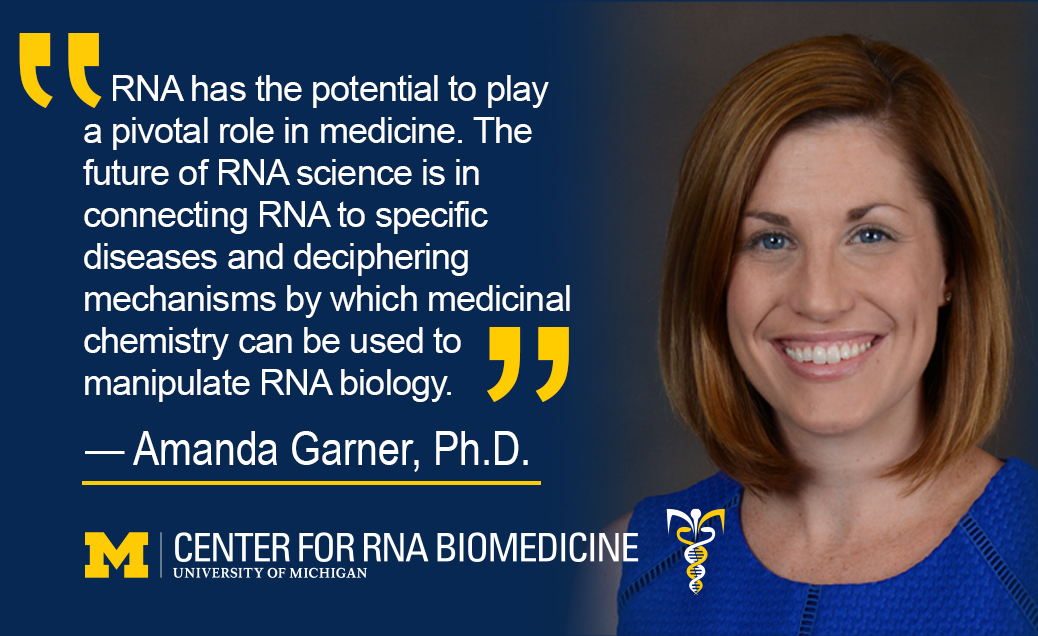RNA Faculty Spotlight – Amanda Garner, Medicinal Chemistry, College of Pharmacy

Amanda Garner
Associate Professor, Medicinal Chemistry, College of Pharmacy
Member of our Executive Committee
Lab Website
Twitter: @ALGchembio
The Garner Laboratory uses chemical biology, medicinal chemistry and molecular and cellular biology approaches to investigate the high-risk/high-reward areas of targeting microRNAs, RNA-protein and protein-protein interactions for probe and drug discovery. These efforts are part of our larger interest in studying mechanisms of translational control, which are dysregulated in many human diseases, yet remain underexplored for therapeutic development.
- Is there a layman image to explain your research?
We are seeking to identify new RNA-related drug targets for the discovery of new medicines.
- Who/what brought you to science?
I am from a very rural area in Western Pennsylvania, St. Marys, Pennsylvania, and never considered a career in science until college. I was fortunate to have a supportive general chemistry professor, Prof. Shaun Murphree at Allegheny College, who demonstrated the impact of chemistry on the world. Following his organic chemistry courses and performing research in his lab, I was hooked!
- What brought you to the University of Michigan?
I came to Michigan in 2013 to start my independent career as an Assistant Professor in the Department of Medicinal Chemistry in the College of Pharmacy. I was just awarded tenure this year, and I couldn’t have asked for a more supportive and scientifically rigorous environment in which to launch my career.
- What advice would you give to students who’d like to get more involved in research?
Do not be afraid of reaching out for opportunities and experiencing different areas of research: chemistry, biology, physics. Science today is interdisciplinary, and it is important to find your niche!
- Are there any opportunities for students to engage in your projects, currently or in the future?
My lab has always been student-focused and we welcome graduate and undergraduate students interested in interfacing between drug discovery and coding and non-coding RNA biology.
- What skills would they need? What could they expect to learn?
Our lab is very diverse, working in research ranging from organic synthesis, molecular and cellular biology, natural products discovery and structural biology. Students choose what area of science they are most interested in, and we set up opportunities for them to learn about that area.
- What profession other than your own would you enjoy, or what is your favorite hobby?
I love cooking! If I were not a scientist, I would most definitely be a chef. Training to become a chef, the dedication and skill required, and starting a new restaurant are very analogous to starting an academic research lab.
